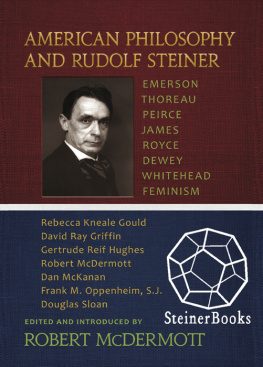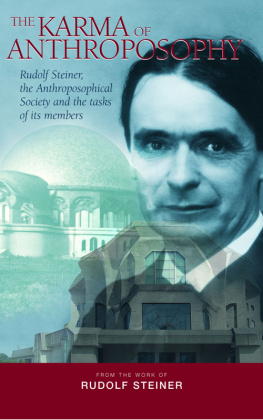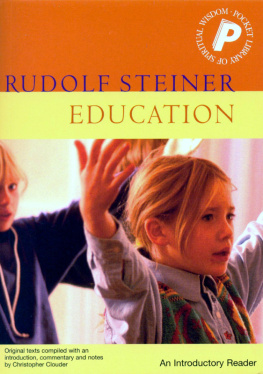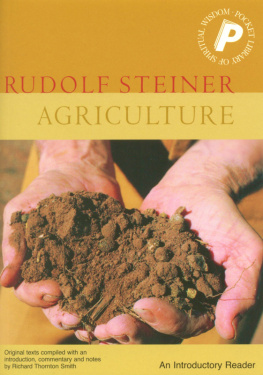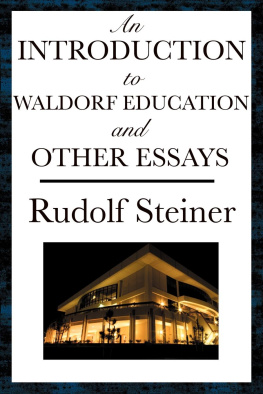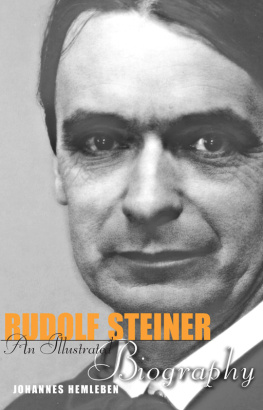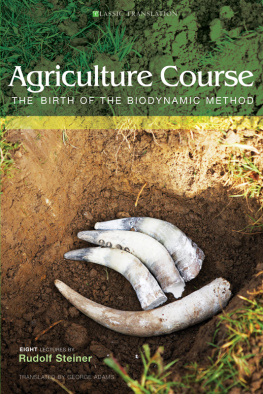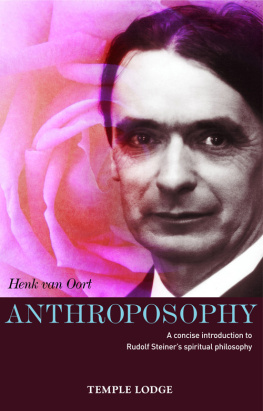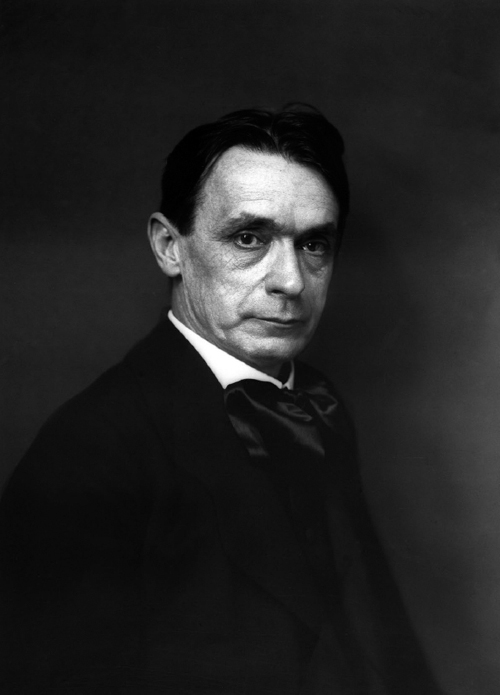John J. McDermott and Frank M. Oppenheim, S. J.,
P REFACE
Robert McDermott
F ive of the articles in this volume were written as part of a seminar on Rudolf Steiner and American Thought as part of a Project for the Renewal of Philosophy, Science, and Education sponsored by Laurance S. Rockefeller. These essaysby David Ray Griffin, Gertrude Reif Hughes, Frank M. Oppenheim, S. J., Douglas Sloan, and myself were first published in ReVision: A Journal of Consciousness and Transformation (spring and summer 1991). I am grateful to Jurgen Kremer, editor of ReVision , and to The Society for the Study of Shamanism, Healing, and Transformation, for permission to republish these essays. In spring 1992 a second seminar, directed by Arthur Zajonc, met to discuss Goethean science. The proceedings of the third seminar, directed by Douglas Sloan, and devoted to society and education, were published in ReVision (1993).
I invited to this seminar eleven professors who I knew would be able to explore collaboratively the relationship between the Anthroposophy of Rudolf Steiner and major American thinkers, including: five professors and authors committed to AnthroposophyGertrude Reif Hughes, Robert Sardello, Douglas Sloan, and Arthur Zajonc, and six colleagues well-schooled in American thoughtDavid Ray Griffin, Patrick Hill, Frank M. Oppenheim, S. J., Richard Tarnas, Frances Vaughan, Roger Walsh. I also invited Georg Locher, a distinguished teacher of Waldorf teachers, to lead the group in artistic exercises each afternoon. I served as facilitator. All thirteen participants read several books by Steiner and by American philosophers.
The group took time on several occasions during the seminar to discuss and regret the first American attack on Iraq that took place during our week together. The group was grateful to participate in a Mass offered for us by Frank Oppenheim, S.J. Except for Patrick Hill, who died in 2008, all thirteen participants are still working on behalf of the topics that brought us to Rye, NY in 1991.
When Gene Gollogly, publisher of SteinerBooks, agreed to my recommendation that we republish the ReVision double issue, Rudolf Steiner and American Thought , as a Lindisfarne book, I immediately recognized the need for several additions. They are: an essay on Steiner and Emerson, contributed by Gertrude Reif Hughes, professor emerita at Wesleyan University; an essay on Steiner and Henry David Thoreau contributed by Becky Gould, professor of religion and ecology at Middlebury College; and a foreword by Dan McKanan, Ralph Waldo Emerson Unitarian-Universalist Professor, Harvard Divinity School. I am grateful to Matthew David Segall, a gifted CIIS doctoral student, for correcting typographical errors and improving infelicitous expressions throughout this volume.
San Francisco, CA
October 2012
F OREWORD
Dan McKanan
F ew thinkers from outside the United States have touched American culture in as many ways as Rudolf Steiner. Agriculture, education, spirituality, and medicineor more precisely, alternative practices in these fieldsall bear clear marks of his influence, for those with eyes to see. Yet the very breadth of Steiner's impact has perhaps made him harder, not easier, for observers of American culture to notice. The terms Waldorf education and biodynamic agriculture are more widely recognized than Rudolf Steiner or Anthroposophy. Anthroposophic initiatives are commonly understood in relation to parallel initiatives with different spiritual roots, rather than in relation to the rich fabric of Steiner's worldview. Americans typically imagine biodynamic agriculture as a more intense form of organics and Waldorf schools as like Montessori schools only more so. When I describe the Camphill movement, most interlocutors respond with Is that like the L'Arche movement? And thousands of shoppers at health food cooperatives and Whole Foods supermarkets purchase Weleda skin lotion, diaper cream, or homeopathic remedies with little sense of connection to Steiner's vision of spirit active in the world.

